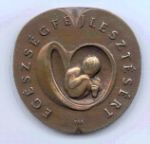1. Health promotion, health education (HU, AT, PT)
Introduction
Health education has always formed an integral part of school
education since the beginning; however its aims, content, problem
scope and methods has always changed according to the characteristic
features of the given period.
Large-scale social changes of recent years and international
comparative researches connected to these changes (with regard to
our topic the most important researches are the WHO HBSC 1983-2000,
and the PISA 2000 – see more about these later) put the problem
scope of the relationships between education as a strategic sector
(and public education within) and health into the foreground.
The situation-revealing researches provide possibility for a
criterion-oriented grasping of country specificities on the one
hand. Those connection points (global key questions) that can become
the actual motives of development in international – here in
European – terms through mobilizing internal resources, helping and
fortifying one another can become more realisable on the other hand.
The main directions of this European development were set by the
international agreement known as the “Lisbon Strategy” (Council of
Europe. 2000), which sets the most important European educational
targets for the period ending in 2010.
This strategy depicts Europe’s future as the creation of a
knowledge-based society, and the tasks of education are worded also
in this context.
Education has to prepare people for being able to contribute to the
creation of a knowledge-based society and for being able to live and
work in it.
This places debates surrounding the effectiveness and efficiency of
education into new light.
New social, political and economic challenges, the understanding and
content of school knowledge, the highlight on new key-competences
put the profession of educators to a serious test. But not only
them. This is an equally great challenge and responsibility for the
whole EU-community, the society, the educational management, the
school and the parents as well.
Educators and of course every candidate has to be prepared for the
fact, that schools have/will have a changed and extremely important
role in enabling individuals in new ways for building their personal
knowledge life long, for choosing among values and for searching for
and creating new values and positive examples.
There is no doubt that health education - promotion has to/should
play a distinguished role in this process.
All the above facts underline the importance and actuality of our
present module (“Health promotion, health education, for
lower-primary teacher trainees”) even more.
By raising the topic we strive at “tuning to one another” with the
primary teacher trainees of three countries, providing a broad
possibility for becoming more absorbed in own country specificities
and then learn from one another, enrich one another and try to
answer our starting question: What is that school like, or more
precisely: by emphasizing versatility, what are those schools in
which, as a part of our professional competence and by using health
education and health promotion actively we can contribute to the
fulfilment of the above mentioned global aims.
We are inviting you for an interactive thinking together and
cooperation!
Let’s examine
what does that school mean here and now that, in the noble sense of
the word, is healthy and whose understanding is it, what should we
pay attention to so as to make this school be able to contribute to
the development of a healthy, multi-faceted personality who is able
to combat and cooperate, and to make it a really attractive and
motivating living-space and workplace for pupils and teachers as
well.
Let’s think
it through, what could we ourselves add to it to be able to gain
more!
„If ...we connect the life and work of many people,
we all can get farther together,
than anyone advancing alone could.“
/Descartes/
For our interactive health-education workshop we are happily waiting
for all those people who wish to cooperate!
CONTENTS
Conceptual umbrella
Preface
1. Zsuzsanna Benkő: Introduction to Health Promotion
2. School and health. Summary by Erzsébet Gyimes
2.1. Under the magnifying glass: Health of school-age children
2.2. Changes in the understanding of Health education
2.3. The realisation of modern health education
2.4. The place and importance of health education in the educational
programme of schools
2.5. “Health-map” of the school
3. Health Education practices
3.1. Herminia Pedro and Isabel Reis: Methods of Health education. An
example from Portugal
3.2. Hans Fibi, Ingrid Hantschk, Silvia Napravnik and Sonja Zach:
Health. I want to know myself. Task sheets for primary school
pupils. An example from Austria
3.3. Gyimes Erzsébet: „Health is a dear treasure...“ Treasure
seeking kids’ club. A Hungarian example
4. Main international agreements
5. Bibliography
Authors
Prof. Zsuzsanna Benkő, Dr. PhD. Habil. Sociologist, Head of the
Departent of Applied Health Sciences, University of Szeged, Juhász
Gyula Teachers’ Training College. International professional
coordinator of the Comenius 2.1 project.
Prof. Mag. Hans Fibi, Department of Physics; State College of
Education Vienna. Subject Coordinator (Physics & Chemistry); Accred.
Lecturer in Education (University of Derby).
Dr. Gyimes Erzsébet, Educator, Lecturer, Department of Education,
University of Szeged, Juhász Gyula Teachers’ Training College.
Subcoordinator of Health promotion – health education module.
Prof. Ingrid Hantschk, Department of Physics; State College of
Education, Vienna.
Silvia Napravnik, student, State College of Education, Vienna.
Profª Doutora Maria Hermínia Pedro, President of the Department of
Basic Education, Natural Sciences Area Coordinator, Instituto
Politécnico de Lisboa, Escola Superior de Educação, Portuguese
National Project-coordinator.
Drª Isabel Reis, Paediatric, Natural Sciences Area, Department of
Basic Education Instituto Politécnico de Lisboa, Escola Superior de
Educação.
Sonja Zach, student, State College of Education, Vienna.
